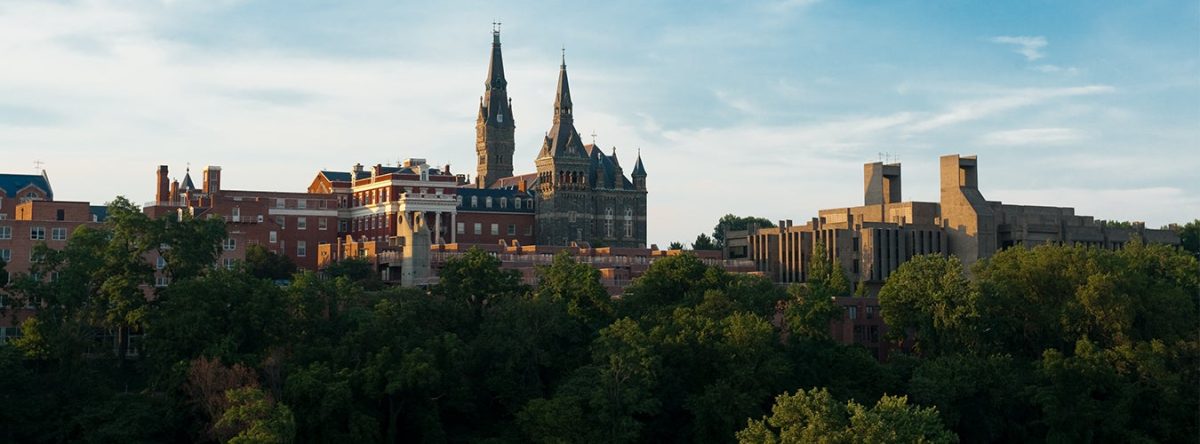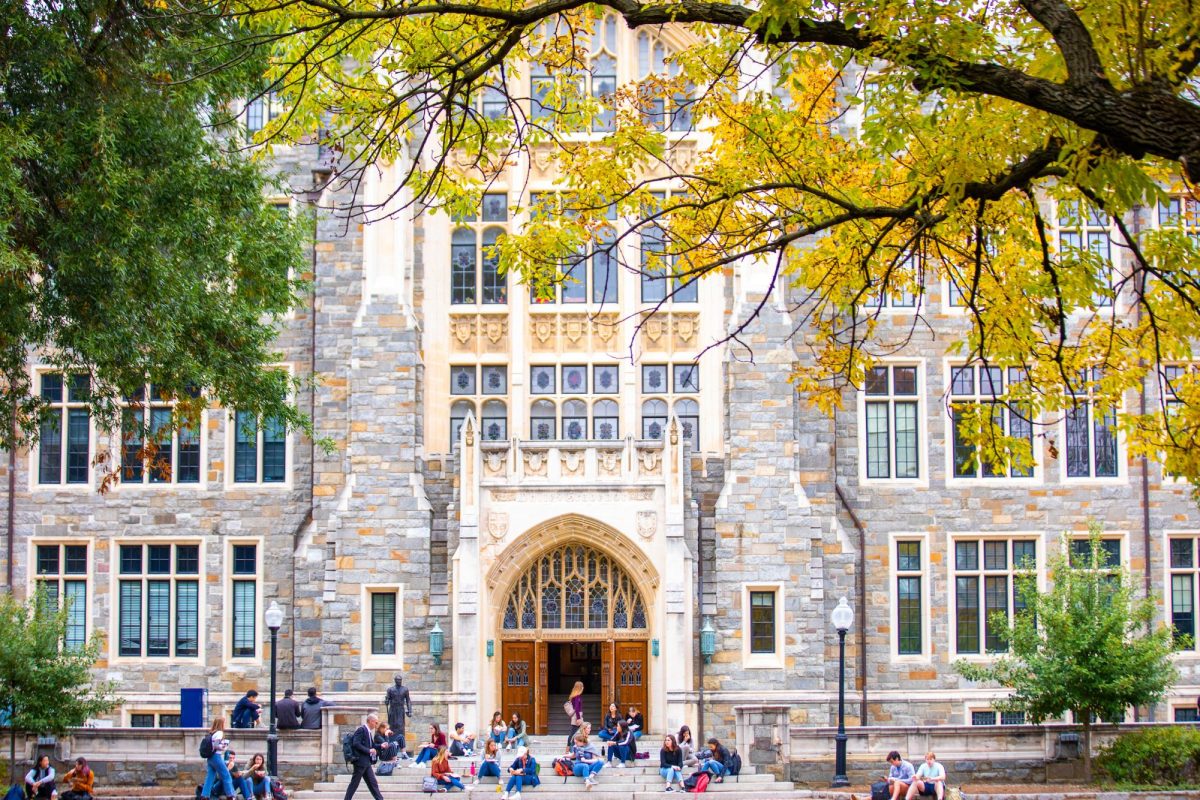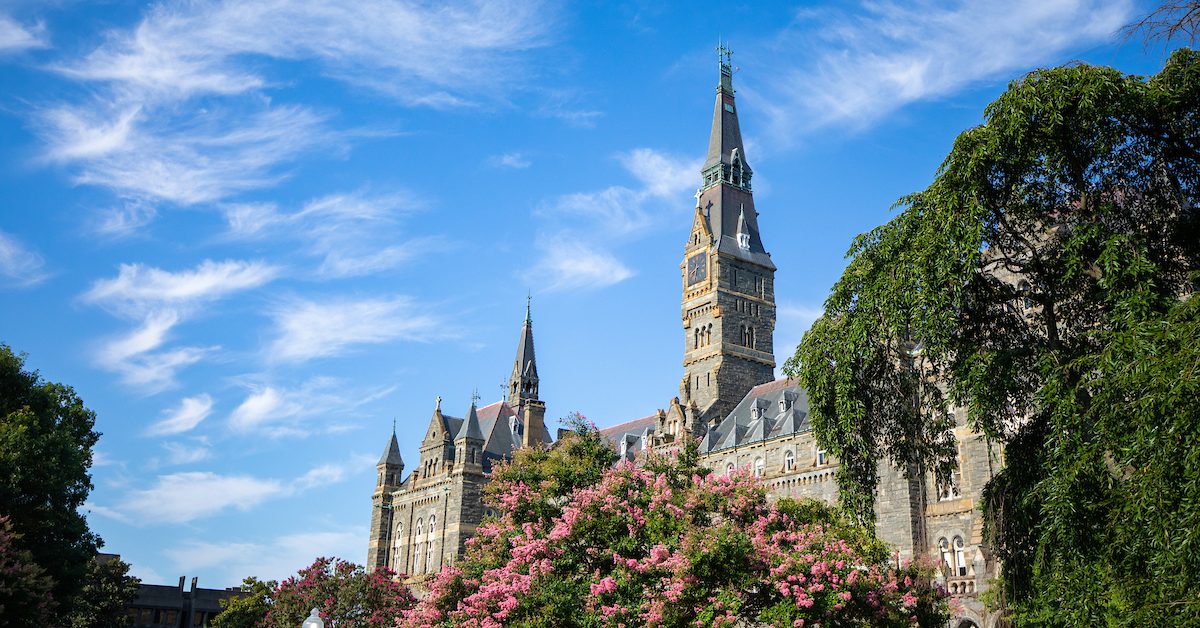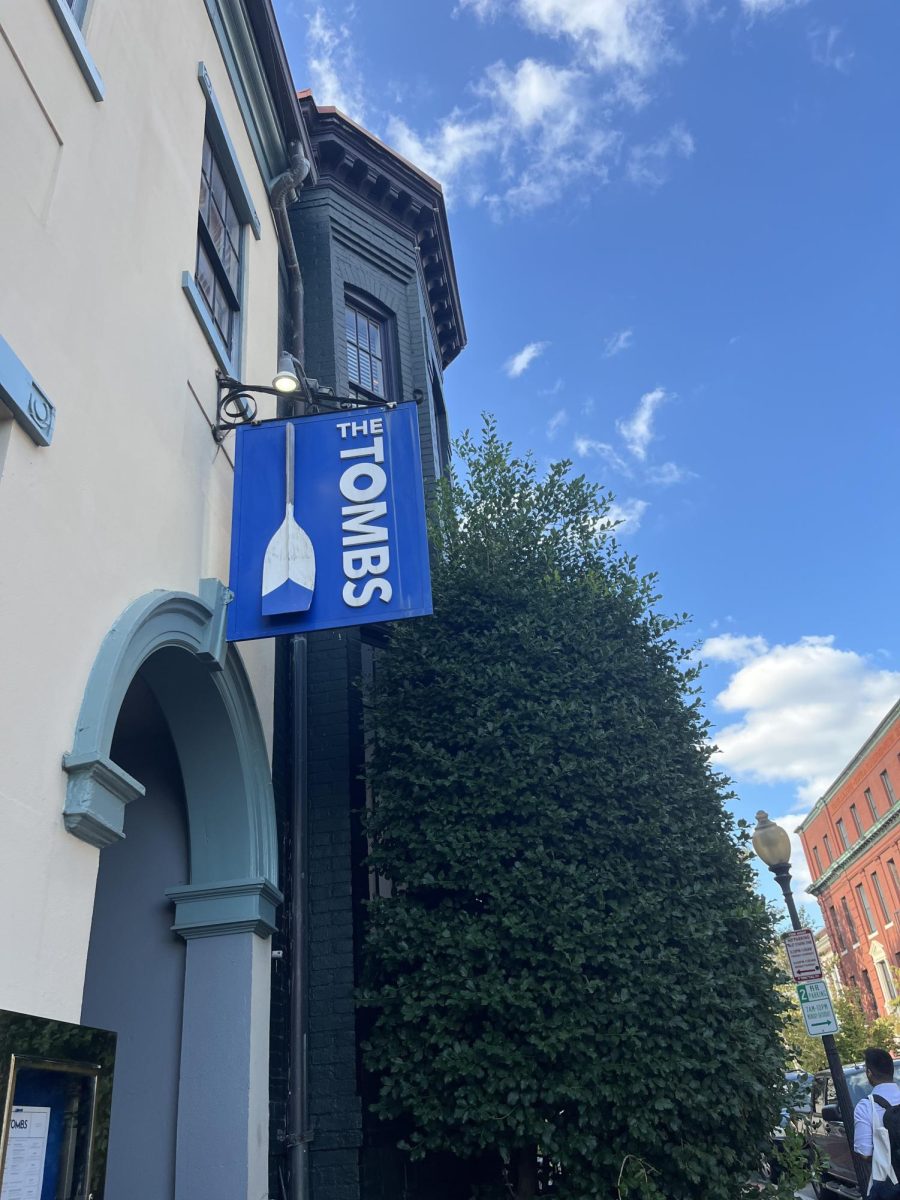The Georgetown University Student Association (GUSA) hosted the first meeting of the Common Spaces Committee, a newly formed GUSA committee focused on improving facilities, with administrative representatives to discuss student complaints with Lauinger Library, study spaces and residential halls April 14.
Allie Schlicht (SFS ’27), GUSA executive’s director of campus and student life, led the discussion, which featured administrative representatives from the Office of Planning & Facilities Management, Lau, the Office of Residential Living, Georgetown Event Management Services, Yates Field House and Student Centers. Schlicht and the administrators addressed concerns about facilities, including library printing issues, accessibility in buildings, study spaces and housing challenges for students returning from study abroad.
Schlicht said GUSA leadership will compile feedback from surveys and engagement with the student body to inform the administration as it improves various campus spaces.
“We want to address the concerns previously submitted by students through the survey, but also are very open to communication and allowing for discussion and questions,” Schlicht said at the event. “We’re hoping for this to be the start to communication and collaboration between all of these groups.”

According to Schlicht, students were most concerned about printing issues in Lau, noting frequent printer malfunctions and slow repairs.
Joe Williams, associate university librarian for scholarly resources and services, said Lau staff are aware of students’ concerns.
“I’ve also heard comments like this from students and also from my own staff,” Williams said at the event. “There are printers in the library, but they are not actually managed by the library, but we try to support as best we can.”
Amy Kenny, director of the Disability Cultural Center (DCC), which promotes on-campus intersectionality and disability awareness, said the DCC is working with Lau to improve library accessibility, which Schlict identified as another student concern, including by opening the first-floor entrance that is currently locked.
“I think that maybe opening the entrance that’s already there, putting a go-card reader, putting a security camera and then figuring out with student staff if there’s a way forward feels like a potential,” Kenny said at the event.
Ethan Henshaw (CAS ’26), GUSA president, said GUSA would be willing to help fund the installation of a go-card reader to the first floor entrance.
“In terms of funding stuff, GUSA is willing to help fund some of it because we do have our $25,000 budget,” Henshaw said at the event. “I just want to offer that we are available as a resource so there’s no obstacle to getting a go-card reader.”
Claire Sanfilippo, assistant director of Student Centers, which manages the Healey Family Student Center (HFSC), said they are working to add furniture and increase seating accommodations in multiple locations.
“We are looking to get new furniture for the lobby area and by the band studios part,” Sanfilippo said at the event. “We’re hoping to increase the number of seating in those spaces, possibly get some more desks up there as well.”
Schlicht said several students were concerned about housing options in the spring after studying abroad in the fall.
“A big concern of students has been that a lot of students who are planning to study abroad in the fall have been really struggling with plans and ways to find housing and roommates for the spring,” Schlicht said. “Study abroad got approved about 10 days before housing selection happened, which then meant they had a 10-day period to completely rearrange their living situation.”
Bill Huff, executive director of the Office of Residential Living, said his team expects a greater number of students to go abroad in Fall 2025.
“We’re anticipating a much larger study abroad group,” Huff said at the event. “The issue is there is this trend where everyone is going abroad in the fall and not going abroad in the spring and without that balance, we’re going to continue to have issues.”
Huff said students studying abroad in the fall will likely live in triples when they return to campus for the spring semester.
“I do anticipate, next spring, you will probably be in triples,” Huff said. “You will probably not be in apartments as juniors. Prepare yourself and if that’s going to be an issue, if you can work with your academic dean to kick your academic program to the spring; do that now and we will re-house you for the fall.”
Schlicht said she hopes more students attend the next committee meeting to learn more about ongoing projects and improvements on campus.
“I think students would probably benefit from being in this room,” Schlict said. “We’re hoping to keep this communication open and this just tells us that there are a lot of projects that are being worked on that students aren’t aware of.”













